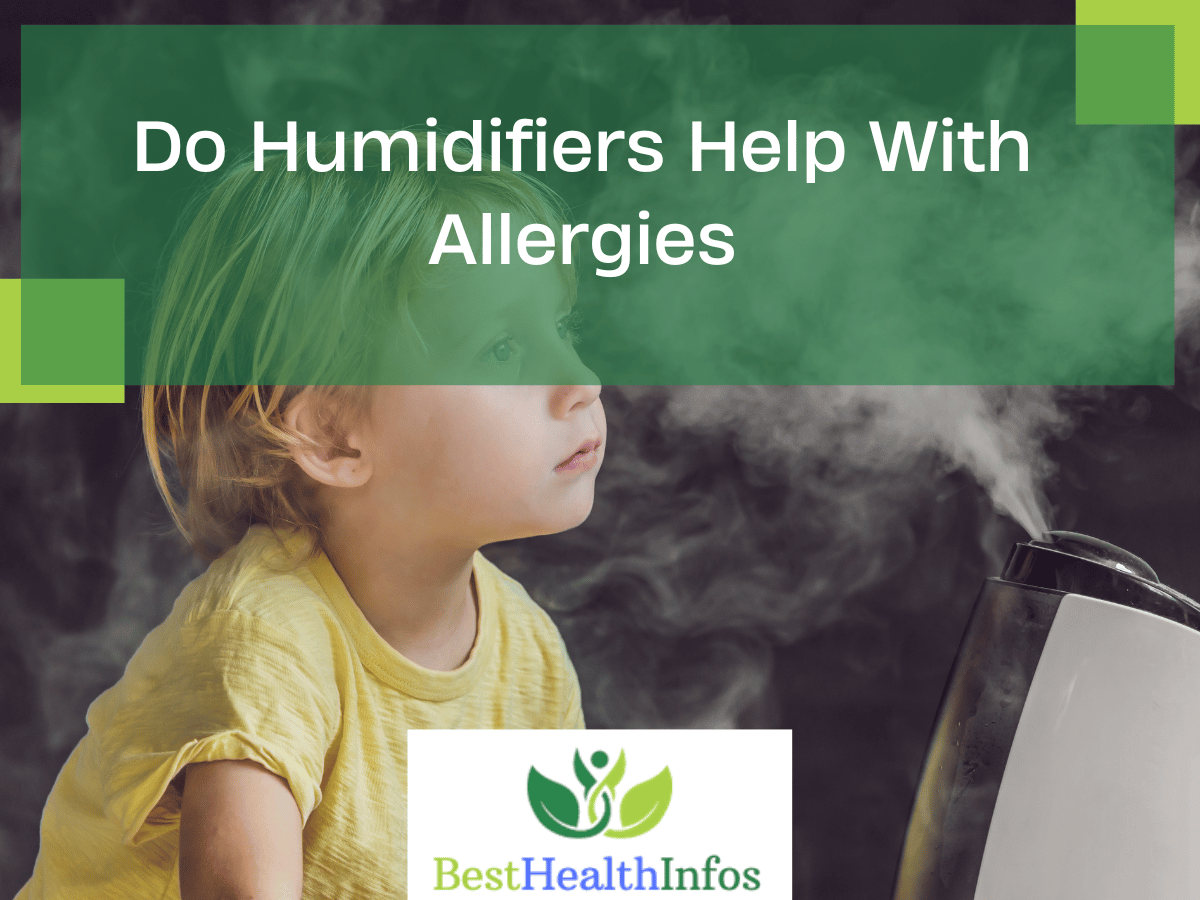People of all ages can experience the common annoyance that is allergies. Life can be uncomfortable due to these uncomfortable situations:
- Sneezing
- Runny nose
- Itchy eyes
- Congestion
The use of humidifiers is one remedy that is frequently brought up in conversations about allergy relief. Do humidifiers, however, actually reduce allergies? To assist you in making an informed choice about using humidifiers, we will discuss the connection between humidifiers and allergies in plain English in this article.
Understanding Allergies
It’s important to understand basically what allergies are before we dive into the potential advantages of humidifiers for allergies. The immune system of our body reacts to stuff that it considers harmful, even if they aren’t harmful to most people, by creating allergies. These materials are called allergens. They can include the following :
- Mould spores
- Dust mites
- Pollen
- Pet dander.
Related Reading: Recognizing the Link Between Sore Throat and Allergies
When an allergen enters your body, our immune system might react by letting out chemicals like histamines to fight against the recognized threat. Common allergy symptoms can result from this reaction like :
- Sneezing
- Itching
- Congestion
The Role of Humidifiers
Devices called humidifiers are made to raise the amount of moisture or humidity in a space’s air. They function by dispersing water vapour into the atmosphere, which can support the upkeep of a cosier and healthier interior atmosphere. In arid climates or during the winter, when indoor heating systems can cause the air to become dry, humidifiers are frequently used.
Also Read: Can Allergies Cause a Cough? Symptoms, Signs, and Causes
Let’s now examine whether or not humidifiers can alleviate allergy symptoms.
Benefits of Humidifiers for Allergies
Relieving Nasal Dryness:
The ability of a humidifier to relieve dry nasal passages is among its most immediate advantages. The dry air can exacerbate symptoms of nasal congestion and inflammation, which are frequently brought on by allergies. Breathing becomes easier when the air is sufficiently humidified because it helps maintain the nasal passages moist.
Cut Down on Irritation:
Allergies can irritate the nose, eyes, and throat. This irritation can be made worse by dry air. By introducing moisture into the air, a humidifier can aid in the relief of these symptoms. This can relieve that nagging tickle in your nose, eye itching, and sore throat.
Handling Dust Mites:
Dust mites are a common allergen that can be found in a lot of homes. They also like dry conditions. Dust mites can be discouraged from living in an environment by using a humidifier to keep indoor humidity levels at the ideal range, which is usually between 30 and 50%. Consequently, this could potentially lessen allergy symptoms brought on by dust mites.
How to Avoid Dry Skin
Rashes and itching can also be skin-related symptoms of allergies. Certain skin conditions can get worse in dry air. By keeping skin moisturised, a humidifier may lessen the intensity of allergic skin reactions.
Reducing Nasal Congestion:
One of the most common allergy symptoms is sinus congestion, which can be extremely uncomfortable. Due to their ability to maintain the nasal passages moist and encourage mucus flow, humidifiers can help relieve sinus congestion. Breathing will become easier as a result, and the stuffy feeling will go.
Relaxing the Breath:
Breathing may be more difficult when you have allergies because your respiratory system may be under stress. A humidifier’s ability to produce the right humidity levels can facilitate easier breathing and lessen lung strain.
Consequences and Pointers:
Although humidifiers can help allergy sufferers in a number of ways, there are some disadvantages and things to keep in mind as well:
Growth of Mould and Bacteria:
Humidifiers that are not properly maintained can turn into havens for the growth of mould and bacteria. This may make allergy symptoms worse and result in breathing problems. Maintaining and cleaning the humidifier on a regular basis is essential to preventing this issue.
Over-Humidification:
Excessive humidity can sometimes be harmful. An abundance of moisture in the air can encourage the growth of dust mites and mould, which are allergens that can aggravate allergies.
Allergic Reactions to Humidifier Additives:
To add a nice scent to their humidifiers, some people add additives like essential oils. Use these additives carefully though, as some people may experience allergic reactions to them.
Humidifier Type Is Important:
There are various kinds of humidifiers, such as warm-mist and cool-mist models. Warm-mist humidifiers might work better in some circumstances, but cool-mist humidifiers are generally safer, especially when around kids. When selecting a humidifier, take your unique needs and circumstances into account.
Different Reactions from Individuals:
Since allergies are very personal, what works for one person might not work for another. While some people may not notice much of a difference, others may find significant relief from a humidifier.
Conclusion
Put simply, humidifiers can help a lot of people manage their allergy symptoms. They can ease breathing difficulties, lessen allergy-related irritation, and relieve dryness by keeping the proper amount of humidity within. In order to prevent potential issues, it is essential to use and maintain them correctly.
Consult a physician; if you’re considering treating your allergies with a humidifier, consult an allergist or your healthcare provider. They can only provide you with advice, helping you to determine whether or not a humidifier is the best choice for your specific allergies. Furthermore, keep in mind that a humidifier ought to be a component of a comprehensive allergy management strategy that also might involve medication and, in certain situations, strategies for avoiding allergens.
How well a humidifier works to control your allergies will depend on your unique situation:
- The particular allergens you are allergic to
- How well you take care of the machine
Humidifiers are a useful addition to your toolkit for relieving allergies, but for optimal effect in controlling your allergic symptoms, use them in concert with other allergy management techniques.
Sources:



